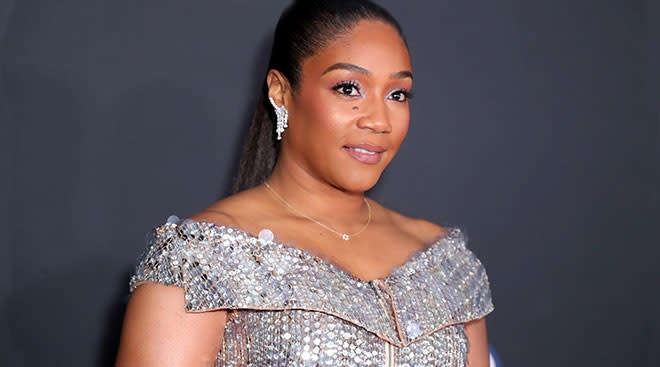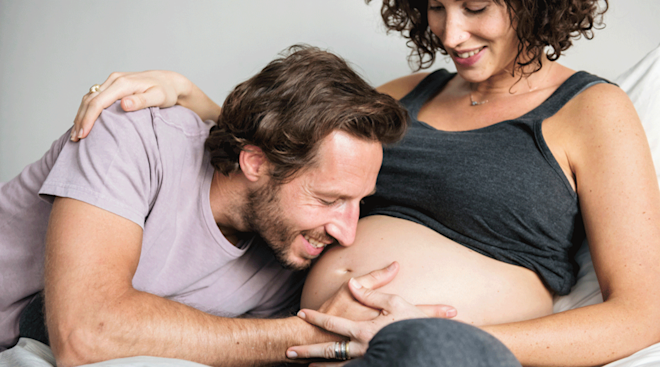Am I Ready for a Baby? 8 Questions to Ask Yourself
Whether you adored playing house as a kid, babysat for a crew of toddlers every weekend during your teenage years or quite suddenly have found yourself swooning every time a stroller passes by, the question, “Am I ready for a baby?” is a hefty one.
“Deciding to have a baby is a huge decision,” says Stephanie Purdom, LISW-S, a social worker and the founder of Wild Hope Therapy in Cleveland and Columbus, Ohio. “A lot of people feel very decisive one way or the other, but it’s completely normal to be confused or ambivalent about starting a family.”
Like other life-changing decisions, evaluating whether you’re ready for a baby comes with a list of factors that you’ll want to weigh—financial implications, your support system and potential career adjustments are just a few of the hefty considerations. Purdom’s approach to normalizing any concerns starts with talking about other goals: “What do you want your life to be about?’” she asks. If you’re thinking about expanding your family, try not to think of parenting as a sole potential identity. Purdom emphasizes that having children shouldn’t define you.
Ready to think through what life would be like with a new addition? Here are eight crucial considerations to work through before fully exploring and answering the mother of all questions: Am I ready for a baby?
While this sounds like a pretty big question to tackle, you can break it down into things that are important to you as a whole. “Focus on your values, goals and the desire for how your life will look. No one knows this but you,” Purdom says. Are you very career driven? Do you have insatiable wanderlust that keeps you from staying put for more than a few months? Think about how you’ll answer these questions, and then consider how a baby might fit into your plan.
Perhaps your parents are counting down the days to becoming grandparents, and will provide plenty of childcare so you can follow your career trajectory. Or maybe your sense of adventure could be an asset to bringing up a curious child. On the other hand, you might like your independence and the ability to be spontaneous. “Hold space for your whole identity,” Purdom adds. “Whatever choice you make is valid. It’s possible to live a full, purposeful life with or without having children.” Moreover, if you’re not ready right now, it doesn’t mean you’ll never be.
This one might seem obvious, but it’s not always so straightforward. If you and your partner are both ready to have a baby, do you plan to start trying immediately or take more of a “let’s see what happens” approach? Keep in mind that even the best laid baby-making plans can take time. Moreover, some prospective parents may need to explore in vitro fertilization (IVF) or other fertility treatments, surrogacy or adoption—all of which require time, money and emotional stamina.
The mental load of having a new baby can be overwhelming, even if you have a healthy emotional outlook and no trouble juggling your pre-baby lifestyle. “Tracking the eating, sleeping and pooping schedule of another human while trying to create a new normal for parents is very hard and often lands on Mom’s lap,” says Bethany Cook, PsyD, HSP, MT-BC, a clinical psychologist and the author of For What It’s Worth: A Perspective on How to Thrive and Survive Parenting Ages 0–2. “Some of this is nature (especially if you’re breastfeeding), and some of it comes from religious and social ideas around parenting.”
Evaluating how you deal with life change, anxiety and even day-to-day routines is vital when deciding if you’re ready for a baby. If you’re already seeing a therapist or taking medication, make sure to talk to a mental health professional about how the arrival of a child will shift routines and impact your hormone levels. Postpartum depression affects about 15 percent of birthing parents, according to the National Institute of Mental Health, and you’ll want to take proactive steps to boost your emotional well-being.
Consider your health, your medical history and your partner’s lifestyle. While the genetic lottery is unpredictable, science has come a long way to help you determine the likelihood of passing along genetic traits. You and your partner can undergo genetic screening tests to see if there’s a high probability of certain genetic disorders such as Down syndrome, cystic fibrosis, sickle cell anemia and Tay-Sachs disease. Even if you’re planning to adopt, taking a closer look at your health can help you decide if you’re ready for the physical challenge of life with a little one. Think of it this way: You may have trouble raising a child if you’re having trouble taking care of yourself.
You don’t have to be rich to have a baby, but having some level of financial security can help. Raising children is expensive (and we’re not just talking about diaper costs). Data from the Brookings Institution, a nonprofit public policy organization, shows that people spend about $18,000 a year on a child. These expenses will likely go into childcare, baby essentials (food, clothing, etc.), and other things like camps, extracurricular activities, birthday parties and potential household upgrades, like getting a bigger house or a larger car to accommodate your growing family.
Your bank account isn’t the only thing to look into. Check your health insurance plan, as pregnancy, childbirth and the first few years of baby’s life are filled with routine doctor visits (even without major health issues.)
Keep in mind that the answer to the question, “Am I ready for a baby?” affects other people too. Even if you’re a single parent, it’s unlikely that it’ll be just you and baby. Support is critical, and you’ll want to think through your network, whether it’s family, friends or a platonic co-parent.
Parents who are a part of a couple, whether married or not, should also have a conversation about baby caretaking. Will one of you have to stay home and quit your job? Do you plan to share parenting responsibilities equally? You’d be surprised how many couples skip this discussion altogether, only to discover that the childrearing load is not what they expected.
To put it plainly: Parental leave is severely lacking in the US—and paid leave is even more uncommon. Investigate the maternity and paternity leave options at your company. You should also consider that while you may intend to return to work, once baby comes, you may change your mind. In that case, how will this affect your career—and are you going to be okay with this adjustment years down the line? Consider different scenarios, but stay open-minded to new possibilities.
Babies, by nature, need attention. That means that you may have to give up your favorite yoga class or put travel plans on hold—at least temporarily. Even basic needs like sleep can fall by the wayside. Parenting involves some level of sacrifice.
The good news is that some of these changes won’t have to be permanent. But you need to know and acknowledge that babies—and kids in general—will take up a lot of your bandwidth. It’s important to set realistic expectations for how and what life will be like post baby.
If you decide you’re ready for a baby, you will learn to navigate this new territory. “Parenting is hard,” Purdom says. “But it can also be an incredibly rewarding and fulfilling experience.” Determining whether you’re ready for a baby or not may take time. It’s not a decision to be taken lightly. Give yourself grace as you think through your life goals and make a plan for you and your family.
About the experts:
Bethany Cook, PsyD, HSP, MT-BC, is a clinical psychologist and the author of *For What It’s Worth: A Perspective on How to Thrive and Survive Parenting Ages 0–2. She’s also a parent of two. Currently, she’s working on developing and producing TV shows centered on families and mental health, among other things.
Stephanie Purdom, LISW-S, is the founder and executive director of Wild Hope Therapy in Cleveland and Columbus, Ohio. She is a therapist who specializes in perinatal mental health, complex trauma and women’s issues. Purdom has been a social worker for over 10 years, working in community mental, advocacy and private practice settings. She’s also a mom to two children.
Please note: The Bump and the materials and information it contains are not intended to, and do not constitute, medical or other health advice or diagnosis and should not be used as such. You should always consult with a qualified physician or health professional about your specific circumstances.
Plus, more from The Bump:
Navigate forward to interact with the calendar and select a date. Press the question mark key to get the keyboard shortcuts for changing dates.




















































